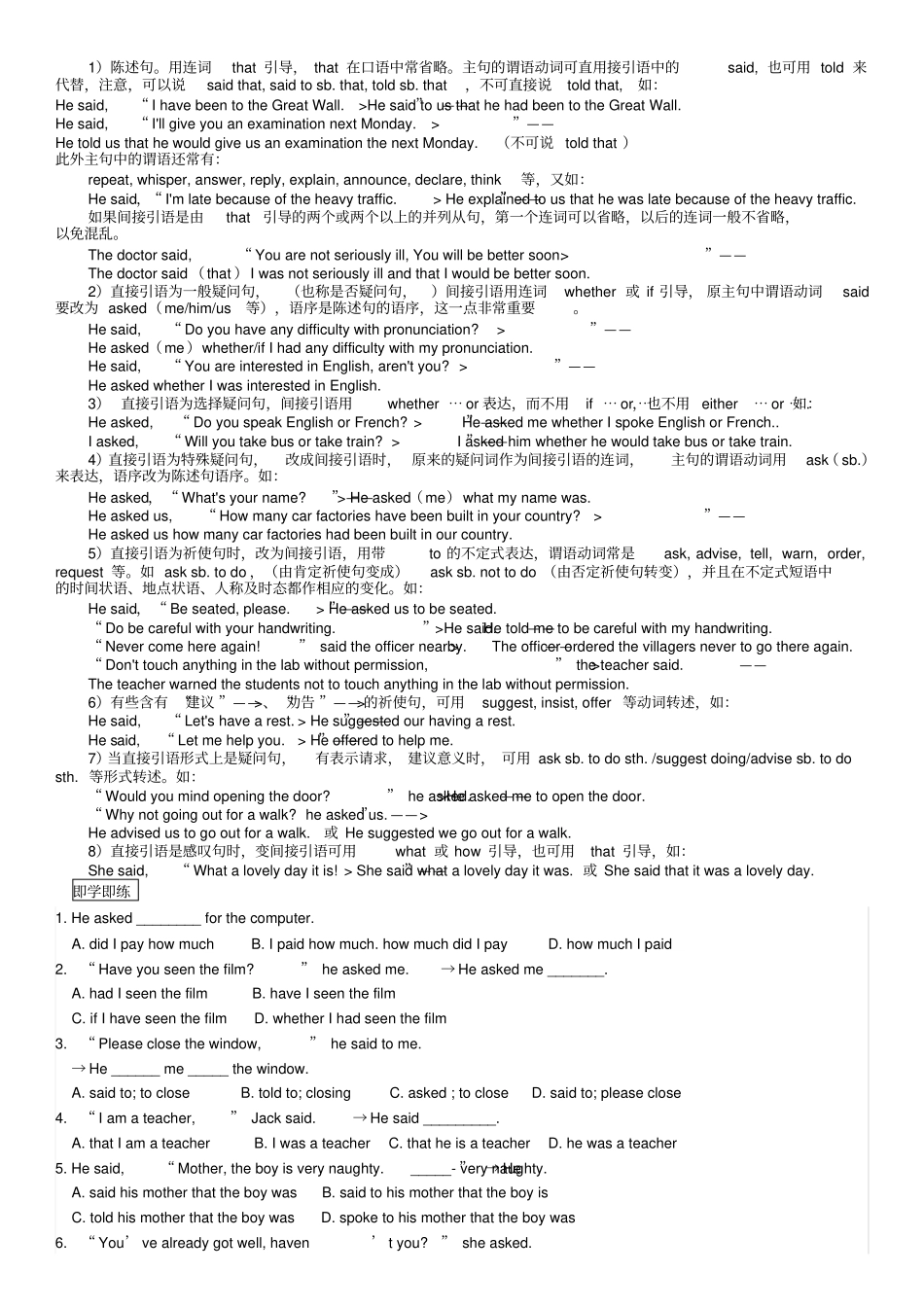直接引语和间接引语引述或转述别人的话称为“引语 ”。直接引用别人的原话,两边用引号“ “标出,叫做直接引语;用自己的语言转述别人的话,不需要引号这叫做间接引语,实际上间接引语大都是宾语从句(其中由祈使句转换的间接引语除外,其转换后是不定式)。那么直接引语为陈述句、一般疑问句、特殊疑问句和祈使句,转换为间接引语时,句子的结构,人称、时态、时间状语和地点状语等都要有变化,如何变化呢? 1、人称的转变1)直接引语中的第一人称,一般转换为第三人称,如:He said,“ I am very sorry.” ——>He said that he was very sorry. 2)直接引语中的第二人称,如果原话是针对转述人说的,转换为第一人称,如:“ You should be more careful next time,” my father told me.——> My father told me that I should be more careful the next time. 3)直接引语中的第二人称,如果原话是针对第三人称说的,转换成第三人称。如:She said to her son, “ I'll check your homework tonight.” ——> She said to her son that she would check his homework that night. 4)人称的转换包括人称代词、物主代词和名词性物主代词等,如:He asked me, “ Will you go to the station with me to meet a friend of mine this afternoon?” ——> He asked me whether I would go to the station with him to meet a friend of his that afternoon. 总之,人称的转换不是固定的,具体情况,具体对待,要符合逻辑。2、时态的转换直接引语改为间接引语时,主句中的谓语动词如果是过去时,从句(即间接引语部分)的谓语动词在时态方面要作相应的变化,变成过去时范畴的各种时态(实际也是宾语从句的时态要求),变化如下:“ I am very glad to visit your school” , she said. —— > She said she was very glad to visit our school. Tom said, “ We are listening to the pop music.” ——> Tom said that they were listening to the pop music. Mother asked, “ Have you finished your homework before you watch TV?” ——> Mother asked me whether I had finished my homework before I watched TV. He asked the conductor, “ ...


